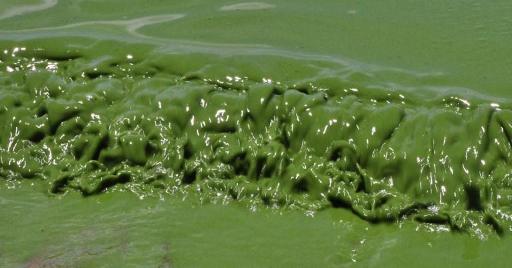The blue-green algae problem has spread to the Dessel-Turnhout-Schoten Canal in Antwerp Province, prompting the authorities to impose a ban on the use of its water and on recreational activities along the waterway.
The measure was announced on Thursday by the office of the Governor of Antwerp, Cathy Berx, after measurements by the Flemish environmental company, Vlaamse Milieumaatschappij, which controls water quality, showed significant amounts of blue-green algae in the water.
Blue-green algae or cyanobacteria is a type of bacteria which, when present in large quantities, covers the water’s surface with a blue-green film. It is naturally present in most bodies of water where there is little movement, such as ponds. When climatic phenomena such as intense heat and prolonged drought favour their development, they can also spread to canals, as is now the case.
When the blue-green algae becomes dominant, it can be dangerous for human and animal health, which is why any contact with the water is banned, as is using it to irrigate farms or giving it to cattle.
The ban concerns the portion of the canal between Brecht and Schoten, between sluices 2 and 10. All recreational activities such as kayaking and fishing are prohibited there. On the other hand, recreational sailing is authorised.
Similar measures were announced recently at Sint-Pieters-Leeuw, Grimbergen and Vilvoorde, for some sections of the Charleroi-Brussels canal and the Willebroek canal, at Ninove for the Dender and on the Bocholt-Herentals canal.
The Brussels Times

